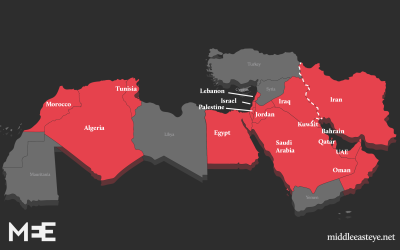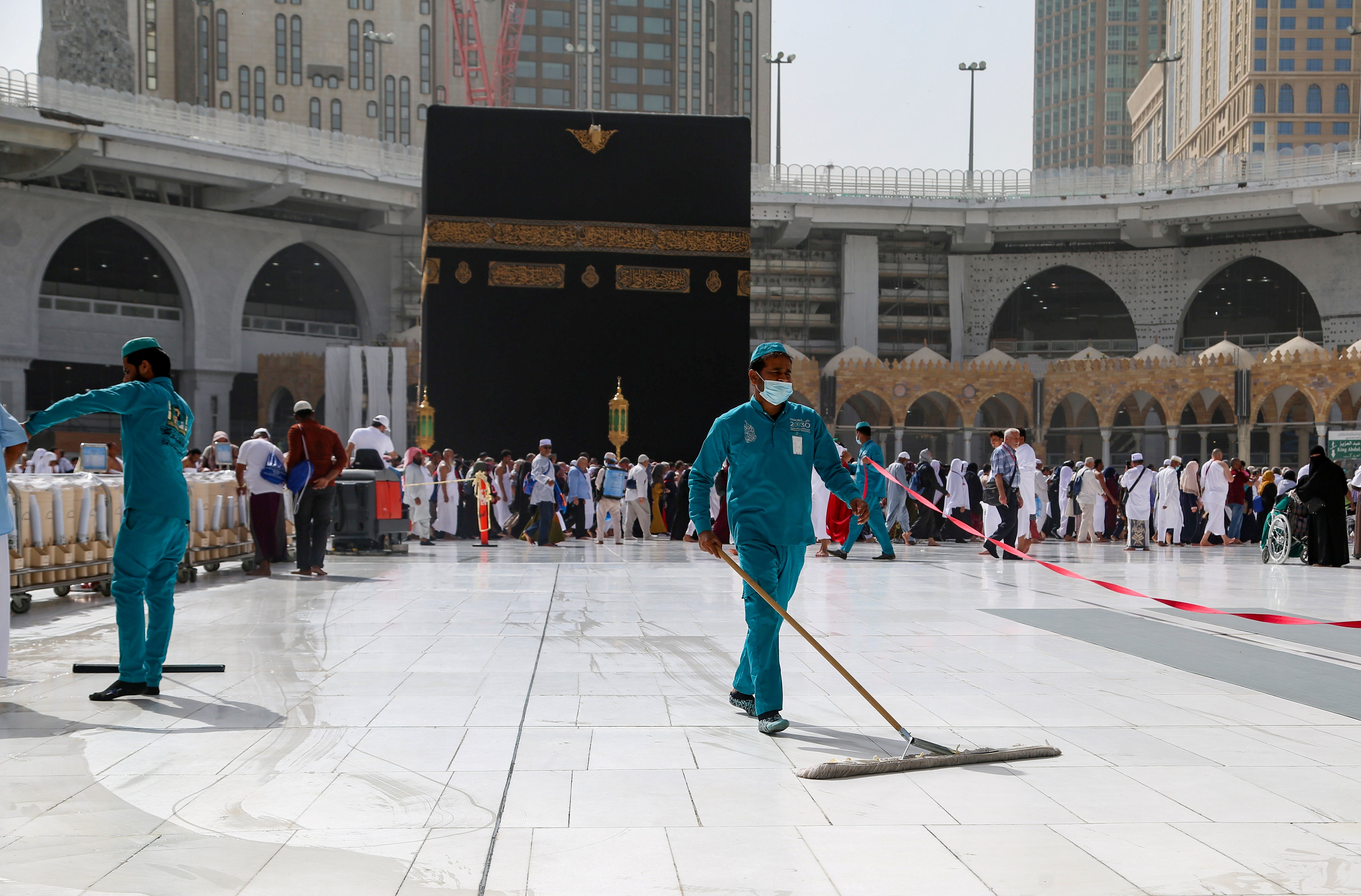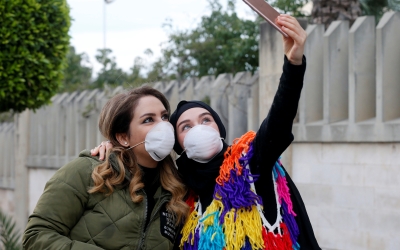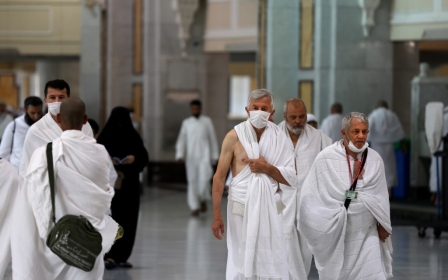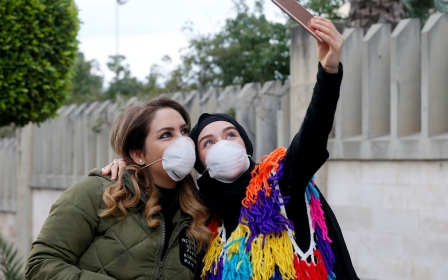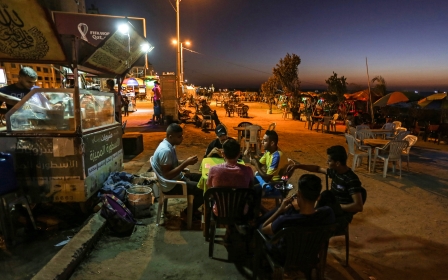Myths, lies and the coronavirus: How Middle East tensions are being stoked
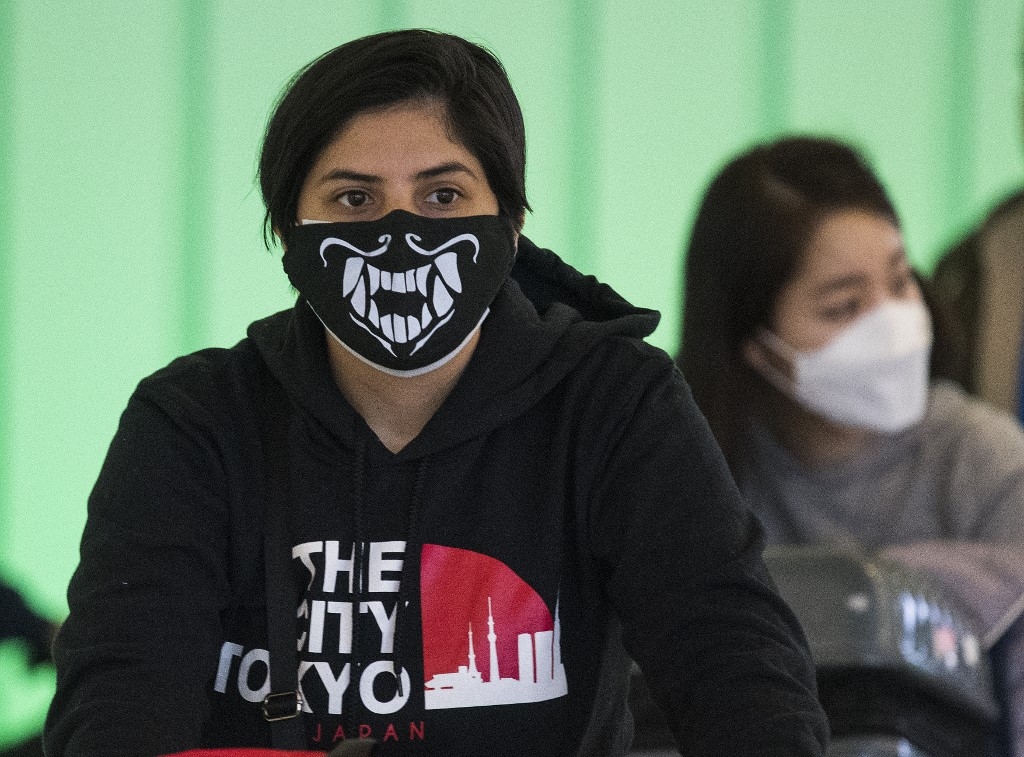
Coronavirus is being opportunistically weaponised through disinformation and propaganda tactics aimed at demonising political opponents, while exposing latent prejudices.
There have been numerous reports of increased xenophobia towards those who look Chinese. Epidemics often prompt the activation of latent tropes that paint specific communities as uncivilised and backwards.
In the Middle East and around the world, coronavirus has reactivated similar prejudices along sectarian lines. One needs only to search for "corona" and "Shia" in Arabic to find tweets linking the rapid spread of the virus in Iran to Shia backwardness.
Vindicating prejudice
Some see ritualistic practices that facilitate the spread of the virus, such as licking a shrine, as a vindication of their own prejudice. One Twitter user generalised that "Sunni" Saudi Arabia's response to the outbreak was civilised and rational, while "Shia" Iran's was beset by idiocy and superstition.
New MEE newsletter: Jerusalem Dispatch
Sign up to get the latest insights and analysis on Israel-Palestine, alongside Turkey Unpacked and other MEE newsletters
The outbreak is also being used by prominent influencers in the Middle East to inflame political tensions. Noura al-Moteari, a Saudi-based journalist, tweeted on 1 March that the virus and its spread were being funded by Qatar in order to undermine Riyadh's Vision 2030 and the UAE's upcoming Expo 2020. Her absurd tweet got thousands of replies, some supportive, others derisive.
Among those who challenged Moteari was Associated Press journalist Jon Gambrell, who wrote: "What responsibility do you see for yourself as a columnist at a state-owned Emirati newspaper to write factually about the virus, both in print and on social media?"
Moteari then claimed that her comment was ironic, and even invented a genre to justify it: "political mythology". After receiving a tweet of support from UAE-based academic Abdulkhaleq Abdulla, a staunch supporter of UAE policy towards Qatar since the advent of the blockade initiated by Qatar's neighbours in 2017, Moteari pinned her tweet, seemingly emboldened by the show of support.
The right kind of disinformation
Moteari's claims of irony were further muddied when she replied to a tweet saying that while Qatar was not competent enough to carry out such an operation, it had hired "mercenaries" who were.
She even used two hashtags, one stating that "Qatar is involved in the manufacturing of corona," and the other that "Qatar is corona". These hashtags gained hundreds of tweets, retweets and replies on Twitter in a couple of days, suggesting that some certainly took it seriously.
The only way Moteari's tweet could be considered irony would be if it was mocking the rhetoric of Saudi Arabia, the UAE, Egypt and Bahrain, who since 2017 have attributed all evils in the region to Qatar. Given the low threshold for tolerance of criticism of Gulf regimes, it is highly unlikely that this is the case.
Meanwhile, given Saudi Arabia's frosty relations with Turkish President Recep Tayyip Erdogan, the next target for the weaponisation of the coronavirus narrative was Turkey.
Analyst Zayed al-Amri claimed on Saudi television that Turkey was not being transparent about its coronavirus cases in order to target Arab tourists, who would then take the virus back to their home countries. Amri claimed that Iran was doing the same, in order to use coronavirus as a weapon to attack all countries of the world.
Ironically, Moteari replied to Amri's tweet about Turkey, warning that people should not be dismissive of conspiracy theories - even after Saudi authorities stated that those spreading rumours about coronavirus that could lead to panic could be fined and jailed for up to five years.
It is telling that those who spread disinformation that generally reflects regime narratives are unlikely to face prosecution. As a result, disinformation is allowed to flow freely - so long as it's the right kind of disinformation, approved by the right online influencers and figures.
Post-truth era
While coronavirus spreads offline, the use of it to activate latent political, religious and cultural prejudices is taking place both in the margins and the mainstream of social media.
Joanne Wright, a US Republican running for Congress in Los Angeles, alluded to the fact that coronavirus was created by a cabal involving Bill Gates, George Soros and the pope. The tweet provoked a raft of related conspiracy theories on Twitter.
The fertile breeding ground for such conspiracies is not new in the Middle East, or indeed the world, but has been enabled in this era of post-truth politics - especially when figures such as US President Donald Trump are legitimising dishonesty.
Indeed, Trump's recent ambiguous claims that coronavirus, or the Democrats' narrative of the virus, was a hoax, legitimised alternative discourses about the spread of the disease.
Here, Trump activated the conspiracy or hoax trope without having to provide a narrative detailing what he meant. Everyone else could fill in the blanks with a conspiracy theory of their choice.
As it stands, viral misinformation about coronavirus has the potential to provoke tensions, hatred and further public health complications.
The views expressed in this article belong to the author and do not necessarily reflect the editorial policy of Middle East Eye.
Middle East Eye delivers independent and unrivalled coverage and analysis of the Middle East, North Africa and beyond. To learn more about republishing this content and the associated fees, please fill out this form. More about MEE can be found here.



